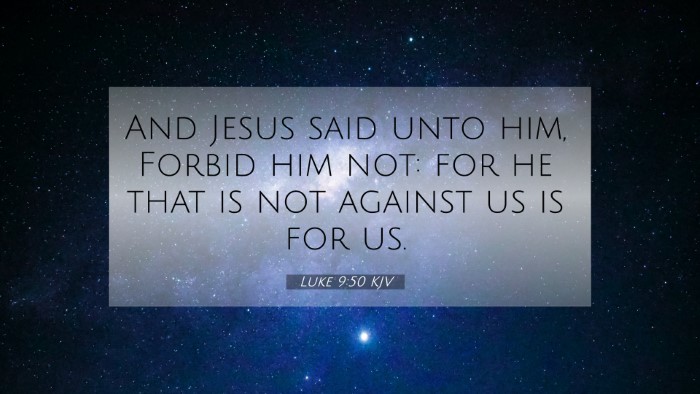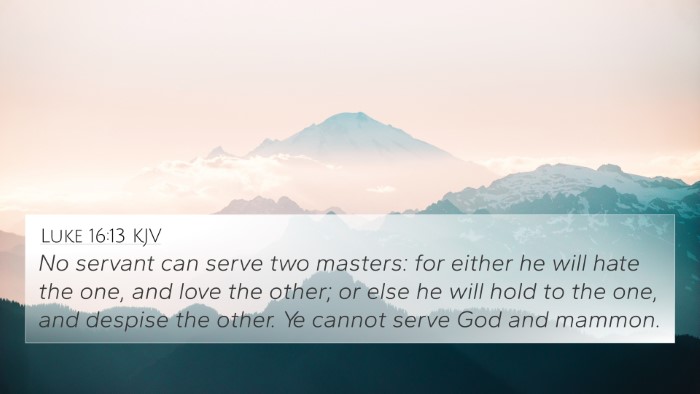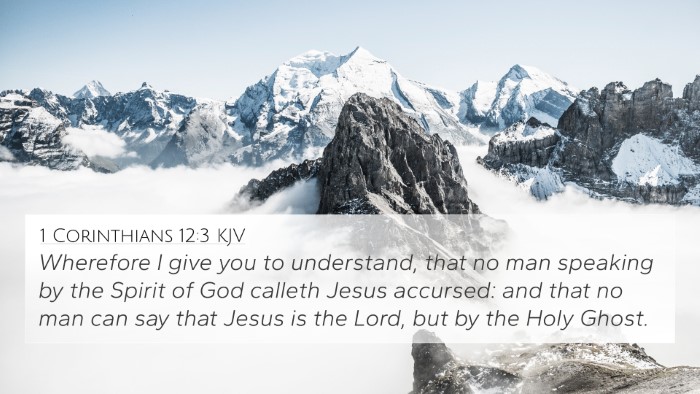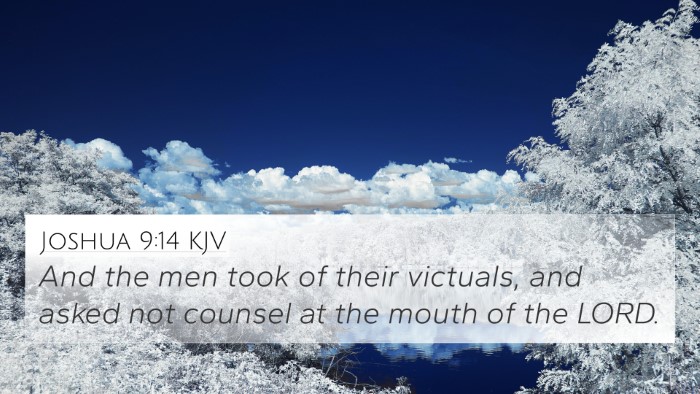Interpretation of Luke 9:50
Luke 9:50 states, "But Jesus said to him, 'Do not forbid him, for he who is not against us is on our side.'
This verse is rich in meaning and highlights essential themes in the teachings of Jesus, particularly in relation to unity among believers and the acceptance of diverse acts of service in His name.
Context and Background
In this passage, the disciples come to Jesus after witnessing someone casting out demons in His name, but they attempt to stop him since he is not part of their group. This moment opens a discussion about inclusivity and the broader implications of serving Christ.
Commentary Insights
The commentaries from Matthew Henry, Albert Barnes, and Adam Clarke provide valuable insights into the verse. Below is a summary of key points drawn from these scholars:
- Matthew Henry: He emphasizes the importance of recognizing genuine work done in the name of Christ, regardless of the worker's affiliation with the established group of disciples. Henry notes that unity in purpose is more crucial than organizational boundaries.
- Albert Barnes: Barnes reflects on the inclusivity of Jesus's ministry, arguing that those who perform miracles in Christ's name share in His mission, even if they do not belong to the inner circle of disciples. He highlights the danger of exclusivity among believers.
- Adam Clarke: Clarke focuses on the nature of true discipleship and the significance of being on Christ’s side. He underscores that one’s actions, particularly those done in Jesus's name, validate their commitment to Him.
Thematic Connections
This verse is intricately linked to various themes found throughout the Bible. It can be cross-referenced with several other scriptures that explore unity, evangelism, and the nature of true discipleship. Here are some notable cross-references:
- Mark 9:39-40: Jesus articulates a similar message, affirming that if someone isn't against Him, they are for Him, reinforcing the inclusivity of His mission.
- Matthew 12:30: "He who is not with me is against me," showing the delineation of allegiance but also affirming that absence of opposition implies support.
- John 10:16: Jesus speaks of having other sheep that are not of this fold, indicating a broader scope of His flock beyond the immediate disciples.
- Acts 10:34-35: Peter's realization that God shows no partiality and accepts people from every nation who fear Him and do what is right.
- Romans 14:4: "Who are you to judge another's servant?" emphasizes the individual autonomy of believers in their service to God.
- Galatians 3:28: Paints a vision of unity among believers, where distinctions based on race, social status, or gender do not matter in Christ.
- Philippians 1:15-18: Paul acknowledges that some preach Christ out of envy, yet he rejoices that Christ is being proclaimed, illustrating a similar spirit to that expressed by Jesus in Luke 9:50.
Application for Believers
This verse challenges Christians to consider their stance on inclusivity within the body of Christ. It serves as a reminder to support those who are working for the Kingdom, regardless of their denominational or organizational backgrounds.
Furthermore, Luke 9:50 prompts an evaluation of personal attitudes towards service and ministry. Believers are called to rejoice in the work being done for Christ rather than restricting it based on perceived divisions or differences.
Conclusion
Luke 9:50 encourages a spirit of openness and collaboration in the Christian faith. The insights from Matthew Henry, Albert Barnes, and Adam Clarke collectively affirm the necessity of recognizing and celebrating the diverse expressions of faith within the larger community of believers.













